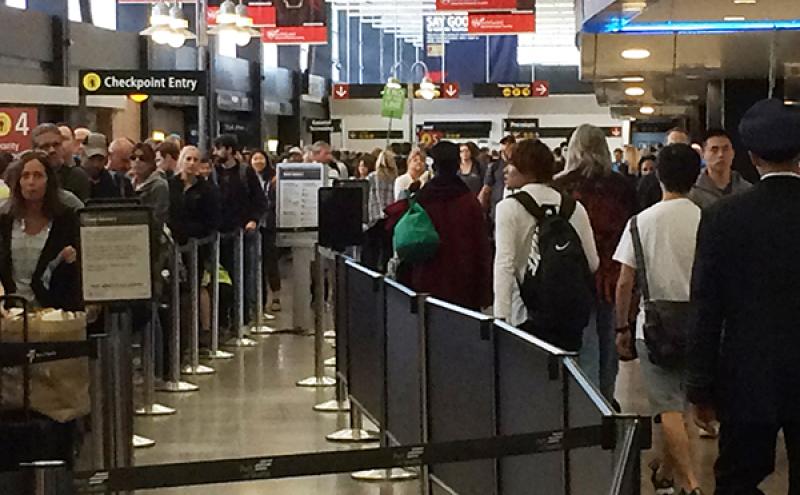
SEATTLE - The Senate Commerce Committee heard testimony from Peter Neffenger, the administrator of the Transportation Security Administration (TSA), this morning. In response to questioning from U.S. Senator Maria Cantwell (D-WA), Neffenger agreed to temporarily reinstitute local training for Sea-Tac Airport TSA officers rather than training in Georgia.
“The Port of Seattle appreciates U.S. Senator Maria Cantwell’s leadership in supporting the Sea-Tac’s efforts to reduce long wait times at security checkpoints,” said Port of Seattle Commissioner Fred Felleman. “TSA staffing at Sea-Tac is inadequate, and we haven’t even reached our busiest time of the year. We’re working hard for a less turbulent summer season. Senator Cantwell’s efforts will significantly benefit our travelers.”
In addition, Neffenger told committee members Sea-Tac is one of their priority airports for additional staffing.
“We have to mitigate what is going to be a very challenging summer season by pushing as many new hires as we can into the system, directing them to the airports of greatest needs, Sea-Tac is one of those,” said Neffenger.
For more information, see press release from Senator Cantwell’s office here.
You can find the video of the hearing here.
About Seattle-Tacoma International Airport
Operated by the Port of Seattle, Seattle-Tacoma International Airport (SEA, KSEA) is ranked as the 13th busiest U.S. airport, serving nearly 42.3 million passengers and more than 332,000 metric tons of air cargo in 2015. With a regional economic impact of more than $16.3 billion in business revenue, Sea-Tac generates 171,796 jobs (109,924 direct jobs) representing over $2.8 billion in direct earnings and more than $565 million in state and local taxes. Twenty-four airlines serve 81 non-stop domestic and 24 international destinations.
The Port of Seattle is setting the course for the future with the Century Agenda. In 25 years, we will generate 100,000 new jobs and increase international trade and tourism, while protecting the environment with innovative sustainability initiatives. Learn more about how the region’s economic engine will keep powering King County’s economy for years to come!

